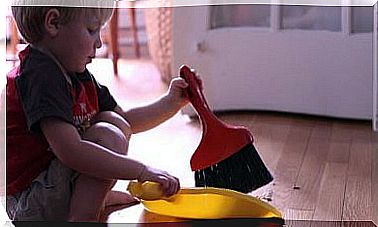What To Do When A Child Does Not Cooperate

There are no magic wands to help you get your children to do things the way you want them to, because they have their own personality and way of doing things. If your child does not cooperate, the best thing you can do without hesitation is give him options.
Choices are the most useful tools to be able to manage life with young children and so that they also learn to cooperate at home. Giving alternatives to the little ones in the house is almost like having a magic wand.
An easy-to-understand example for giving children options might be: Do you want to go to bed now or in five minutes? In five minutes? Okay, but you’ll have to go to bed in five minutes no matter what else . ” (In this example the child obviously decides in five minutes).
Giving options is always the best solution
You may be wondering right now how this trick could work so well, it seems too good to be true! This option is the best solution because it is a win-win. What does this mean? It means that neither party loses, the child does not feel that anything is being imposed on him and you give him options so that everything is fine and everyone is happy.
So if your child chooses one of the two options, everyone is happy with the situation, the power struggles will remain in the past and you will not be forcing your child to do something, but your child will be the one who makes the choice. to do it or not to do it (you will be avoiding behavior problems).
You need to know that a child when he does not cooperate is because he does not like to feel obliged to do something, when you change this perspective and he realizes that he is the protagonist of the choice, cooperation will come alone. But for this technique to work, it is necessary to do it well, but … how do you do it well?

Set limited options
Never more than two or three and that they are the most palatable for your child and that it is not something that could be considered unacceptable for you. For young children it is necessary that the options are between two and easy to understand, for example: “Do you want to put the jacket on yourself or do I put it on you?”.
But as children get older, then the options can become a bit more complicated and adapt them to them, for example: “If you don’t want to play soccer that’s fine, but you should choose a physical activity that you can do.” This way they will feel more independent and in control of their own decisions.
Children must understand that they are their responsibility
It is necessary that the options that are used in a child who does not cooperate and that the objective is that he does cooperate, is to give them options that they can perform correctly. For example, you can tell your child that when homework is done, you can go for a walk or do crafts. Thus, your child can choose the option that interests him the most without feeling that it has been an imposition.
On the other hand, if you say: “After you do the homework we will do crafts” your child may not want to do homework or crafts, just because he feels that you are forcing him to do so.

The consequences will always exist
Something important that children must learn with this technique is that every action has a consequence (positive or negative). For example, if your child has a test, you can tell him that it is his choice to study to get a good grade and be sure, but if he does not do so, it will have negative consequences … that passing them will also have been his choice.
It is necessary that the options you offer your children are options that you can bear, for example if you do not want them to fail under any circumstances you should help them learn study techniques, to be motivated and to be a better student.
All these tips are suitable for any child who does not cooperate in daily activities at home, but you cannot forget that empathy is the most important thing for your child to understand that things can go well. Your child needs to feel understood so they can make a better decision. Put aside power struggles and be consistent with the consequences you set, because a child who cooperates more is much happier at home.









